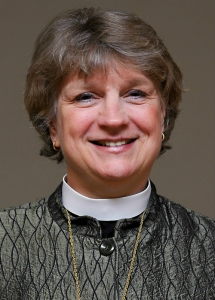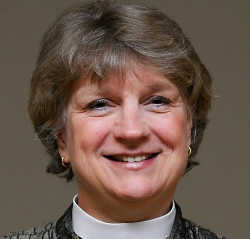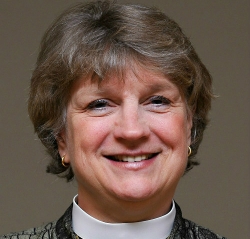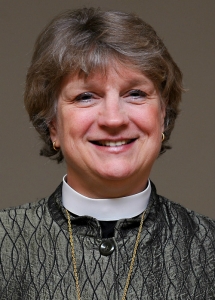After the rain stops
March 23rd, 2020 By Bishop Ann Svennungsen
By Bishop Ann Svennungsen
How long, O God, how long? When can I leave my house? When will there be enough COVID tests; enough n95 masks? When will this pandemic be over? How long, Oh God?
And, how can we make faithful decisions with so many unknowns? How can we find peace and serenity in such uncertainty?
Two days before the first Covid-19 case in Minnesota, our grandson Noah John Koslig was born. I’ve thought a lot about his namesake the past two weeks.
It’s hard to imagine all the questions Noah had. God calls him to prepare for a massive flood; to make an ark big enough to hold his family and two of every living creature.
“It’s hard to imagine all the questions Noah had.”
So Noah builds an ark, even while the sun shines brightly. Noah fills the ark with living creatures, and the sun’s still shining. And then, as God promised, the rains come – forty days’ worth. But, there’s a catch. Even after the rains stop, it takes 150 days for the waters to recede and the ark to touch land. How did Noah cope with such uncertainty?
NOAH WASN’T THE ONLY one called to follow God in a time of uncertainty. Scripture is filled with such stories of faith. The Israelites wandering in the wilderness without an end in sight. The Magi following a distant star to Bethlehem. The early church, with countless starts and stumbles, following the Spirit to the ends of the earth.
So what can we learn from our forebears in faith? Don’t expect to have the whole picture before you take a step. Don’t expect that one decision will be sufficient. Don’t expect to always make the right decision.
A word of caution. There are key decisions we must make in the face of pandemic. Even if it sometimes feels like building an ark while the sun shines, it’s essential that we do what the CDC and MN Department of Health say to do. Keep at least 6 feet away from others. Stay home if you’re sick. Wash your hands.
On the other hand, decisions about grocery delivery vs. grocery pick up; going to the dentistnow or alter; or cancelling your cabin reservation for August; these are not critical decisions. When you feel overwhelmed by the minor choices, choose instead to breathe.
“Don’t expect to have the whole picture before you take a step.”
Our kids and grandkids could sing us a more contemporary hymn about decisions in a time of sifting sand. From Frozen 2, in the face of great uncertainty and loss, Anna wonders what to do:
The life I knew is over, … I can’t find my direction.
Take a step, step again. It is all that I can to do. The next right thing.
I won’t look too far ahead. It’s too much for me to take.
We are in this together. (Thank God!) We’re probably in this for longer than we’d anticipated. And, our loving God is also with us — as close as the next breath.




 By Bishop Ann Svennungsen
By Bishop Ann Svennungsen